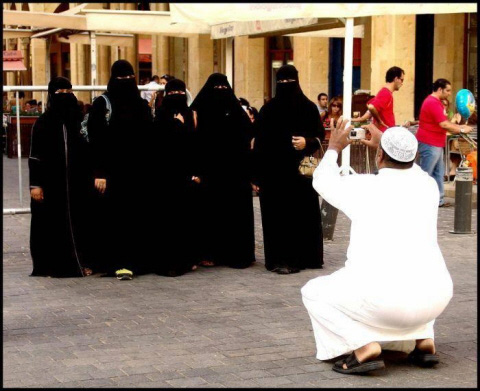

11/22/2012

Word must be spreading around the planet that America, despite its worsening proximity to financial Greecification, is still a soft touch for diverse victims needing free stuff on the taxpayer’s back. Yep, the US is social services purveyor and flophouse to the world.
Unsurprisingly, the “victim visa” categories (U for general crime sufferers and T-1 for sex workers) are total fraud magnets, where a black eye counts for more than a college degree.
The latest recipients are Saudi women, one of the most genuinely oppressed groups on earth, who somehow learned about available goodies in America even in their curiously cloistered lives. (One recent example of subjugation: Saudi women can now be electronically monitored by their male owners and the government.)

In 2007, I investigated the system of freebies for persons, mostly females, who can convince authorities that some crime has befallen them: Victim Visas–How America Stupidly Rewards Misfortune and Fraud. Then in 2010, the Obama administration noticed the U Visa as yet another portal for illegal aliens as the numerical limit (10,000 plus family members) was reached for the first time. Incidentally, since nearly all immigration comes from misogynous cultural diversity today, it’s not surprising that more foreign women seek rescue from their piggyman relatives when they see the freedom of American women.
Now the usual suspects are clamoring for an increased number of victim visas. What could possibly go wrong?
Not that many Saudi women have escaped their slavery to US welfare offices … yet.
Saudi women get U.S. ‘victim visas’ following family disputes, Al Arabiya, November 18, 2012
Five Saudi women living in the United States replaced their student visas with “victim visas” following disputes with male members of their families.
The women, whose change of status renders them ineligible for financial support from Saudi Cultural Bureau in Washington DC, were accompanying their families to the United States and went to court after they got into fights with their husbands or brothers, the Saudi edition of al-Hayat newspaper quoted a source from the bureau as saying.
One of those women, the source explained, is a student currently living with her children in an orphanage because of a dispute with her husband.
After the American court with which she filed a complaint ruled in her favor, she was not able to go back to her husband and since there were no guarantees of her safety if she returns to Saudi Arabia, she preferred to stay in the United States. She is now financially supported by the American government.
The source noted that the financial assistance granted to those girls, who are usually students themselves, varies from one case to another. It could come in the form of a job, an academic scholarship, or food and shelter as in the case of the orphanage.
The source said the embassy and the cultural bureau do their best to reach a peaceful resolution, but these efforts do not usually bear fruit.
“Many of the girls argue that they do not feel safe going back to their husbands or to their families in Saudi Arabia, so they opt for giving up their student visas and the financial assistance provided by the Saudi government and apply for the victim visa which allows them to stay in the U.S. and receive assistance,” the unnamed source said. ??Women and children living in the U.S. are eligible for a victim visa under certain conditions, the most important of which is having been victims of specific crimes and having those crimes proven and reported.
The most common of the 26 crimes listed by the victim visa regulation are sexual harassment, rape, abduction, human trafficking, and torture.